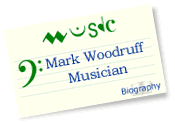

|
| Budgeting for music |
| A deeper, wider musical context |
| Only the greatest beauty will do |
| Music in every church |
| The
Church and a new music |
Only the greatest beauty will do
Ronald Blythe, the author of Akenfield, places the dislocation of musical, social and historical time and place with the removal of a whole generation of young men from the land and dredging ditches and hedge laying to trench digging in Flanders and the Somme. Not so many came back, still less did they want to sing. It seems Vaughan Williams and Cecil Sharp and Martin Shaw caught the tunes and the singing just as the music of the folk lost heart and it became the dreaming dreams of old men. When another generation of men went off to fight in Europe again no one was left to carry forward the store of wisdom. It was like a forest too much felled for timber and no longer apt for saplings to put forth shoots. By the time the weary were back, the old order was passing and, anyway, now it was time for Swing and Jazz, and just around the corner was Rock and Roll. The two sound worlds, acknowledged each other and went their separate ways, perhaps. Two branches of musical culture lost in each other their mutual context, and increasingly the great tradition of music has been sidelined towards the educated and affluent, while beauty and depth and real heart is denied for those who have no accessibility for it. Here, indeed, we have no abiding city. You have only to see the dark brown brick flats and the grim grey towers into which unbeauteous architects engineered low expectations of the poor in the 1960s, to see that the concealment of beauty as the highest principle of existence for the creatures made in the image of God remains the last veil to be rent in twain.
Some years after my time in Suffolk, I worked in Stepney. St Mary & St Michael Catholic Church prides itself on being a sort of Cathedral on the Commercial Road in the East End. While I was there I totted up that if I put my equally beloved Anglican and Roman Catholic ministries together I had reached my tenth anniversary of priestly ordination. We had Mozart's Sparrow Mass, lots of hymns from the English Hymnal, some Bruckner motets and even trumpets, but no shawms*. Strangely my colleagues thought it inappropriate to have Latin and old music in the modern East End - it was not given to participation among the laity and was my imposition from a cultural élite on so-called ordinary people. My feeling was that this was grossly condescending to the people. In fact, there was a warm welcome to part of the patrimony being made available again. Interestingly, younger people who habitually described Mass as boring found this event engaging. They discovered that being treated seriously and afforded some access to a plane they never much visited before - but on which they had just as much right to stand or roam as the well-heeled aficionados of the Oratory miles to the West - was something very, very affecting.
This seemed to me to bear out my conviction that if we believe in the glory of the Lord, we whose nature he has taken are endued with no less glory. Nothing less than the greatest beauty - whatever allowances one makes for different styles, tastes and personalities - nothing less than the greatest beauty will do. How spiritually devastating, therefore, that we consistently settle for so much less. It is as though we are short-changing ourselves and the coinage is debased.
* The Shawm is an ancient reeded musical instrument.